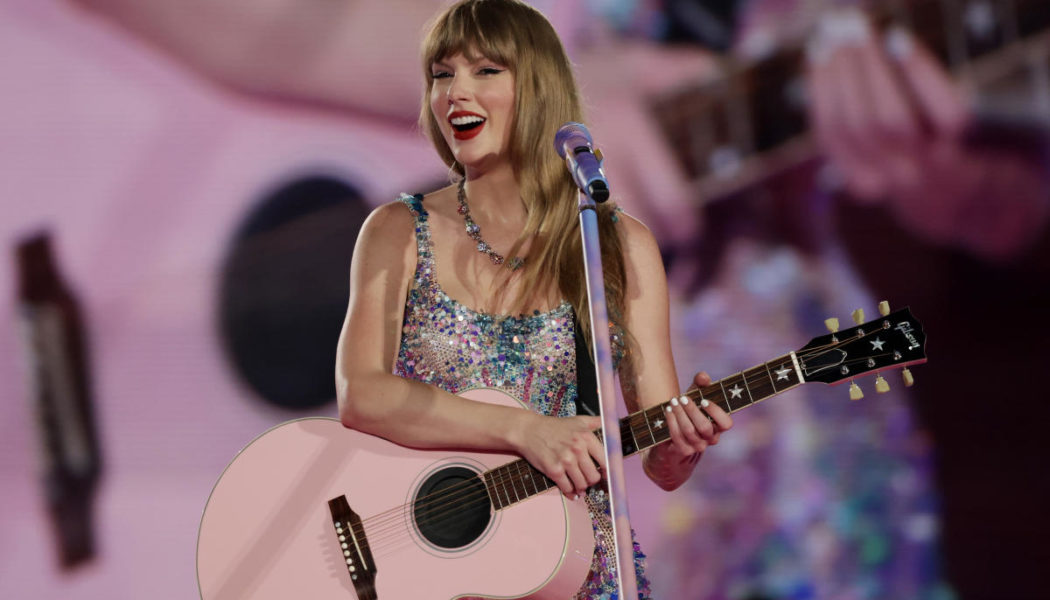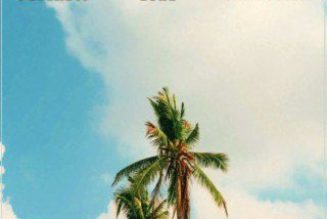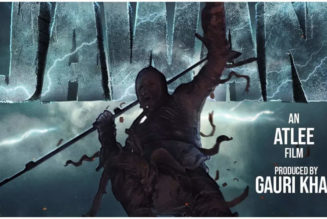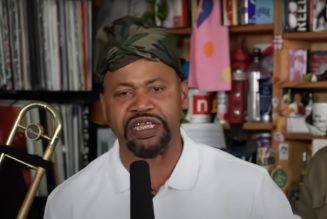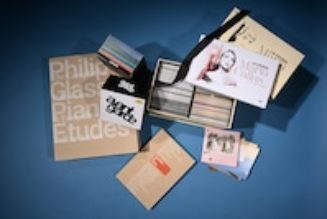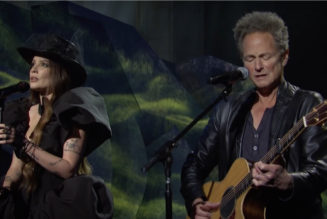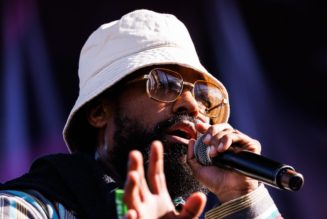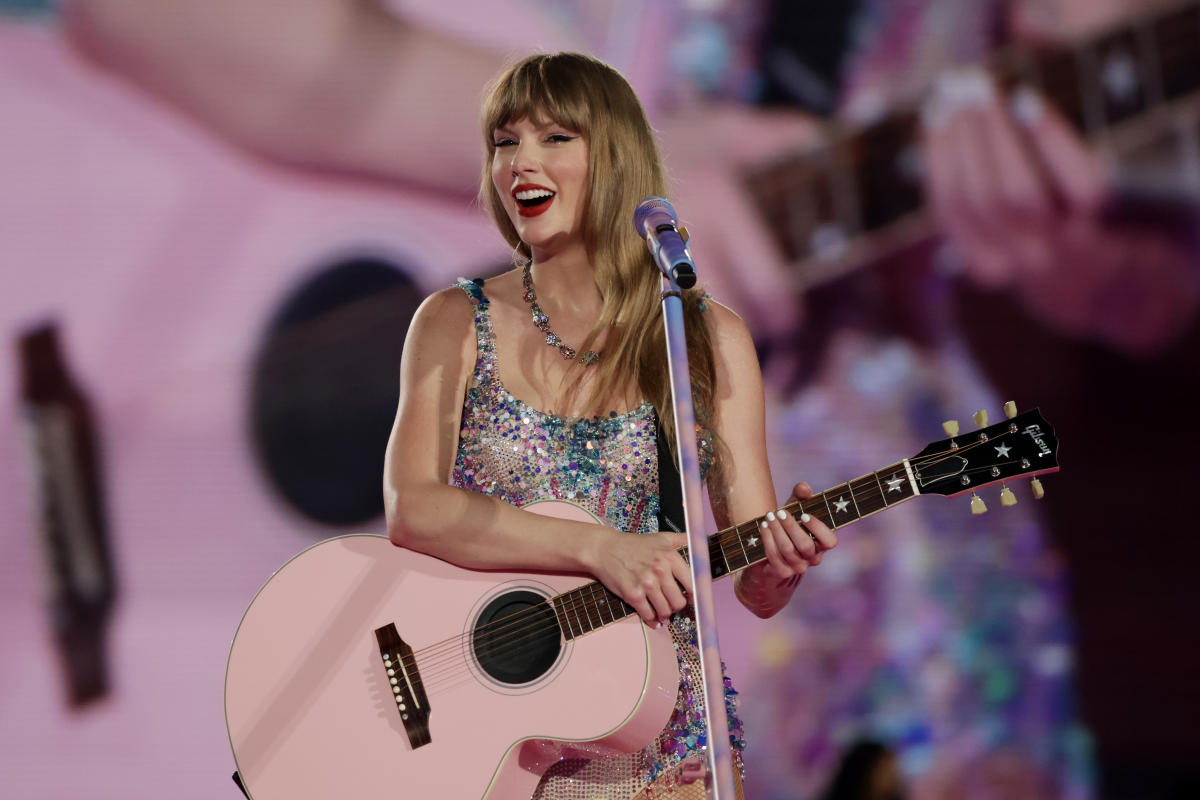
Taylor Swift’s songs have returned to TikTok months after the announcement of a licensing dispute between the platform and Universal Music Group (UMG) and ahead of her highly anticipated album release. Her deal with TikTok, which went against UMG’s wishes, proves Swift doesn’t need labels. What she does need are fans.
Even though Swift has been part of UMG’s publishing division since 2018, she seems to have signed a separate deal with TikTok, presumably because she owns her masters, which means she has full creative control over her music. According to the Wall Street Journal, when Swift’s team presented the plans to promote The Tortured Poets Department on TikTok, it was to the surprise of label executives. UMG asked Swift’s team to reconsider, allegedly arguing it was important “for the industry” that her catalog stay off the platform.
A representative for Swift did not respond to a request for comment.
“It’s not so much that Taylor Swift needs TikTok as it is that Taylor Swift needs a particular kind of fan engagement that TikTok makes possible,” Paula Harper, an assistant professor in the department of music at the University of Chicago, told Yahoo Entertainment. The engagement TikTok offers, Harper argues, is beyond what UMG can facilitate itself.
That’s why Swift’s camp didn’t budge on the decision to return to TikTok. Swift’s fandom expects a specific type of lead-up to album drops that Swift has become synonymous with since her 2008 debut album.
“The way that Swift’s fans work is so particular, and the way that they work with her music is so particular, so it fits exactly into the way social media fandom works,” Harper explained, referring to the “Easter eggs” and codes Swift leaves for fans. “The sleuthing and investigations — the fan involvement on this very granular and detail-oriented scale — is something that Swift needs for her releases to be as successful as possible.”
Selling vinyl records of her albums is perfect social media fodder, as are the in-person promotional events.
“It’s something that is built to be circulated on TikTok,” Harper said. “It’s built for fans to be posting videos and then other fans on TikTok to be screenshotting and zooming and enhancing and collaboratively working out all these kinds of puzzle-y prerelease clues that she is leaving us.”
Swift has always utilized some form of social media to engage with fans. Early on in her career, it was Tumblr; ahead of her Reputation release in 2017, she deleted all of her Instagram posts. For 2022’s Midnights, her last album of all-new material, Swift released a track reveal video for every song in a TikTok series she called “Midnights Mayhem With Me.”
Her relationship with fans is pivotal to her success. In fact, allegations that Poets had leaked on Thursday had the fandom, out of respect, refusing to listen.
“She needs fans to maintain the current dominance that she has over the music industry,” Harper argued. “More specifically than that, she needs fan engagement.”
What about fighting for smaller artists?
When UMG announced it would revoke its licensing agreement with TikTok in January, TikTok emphasized in a statement that it had helped launch many artists’ careers by being a “free promotional and discovery vehicle for their talent.” But one of the major disputes UMG had with TikTok was low artist and songwriter compensation.
Neither TikTok nor UMG responded to Yahoo Entertainment’s requests for comment.
Swift is a billionaire and, as Harper suggests, is leveraging the platform for fan engagement. But for an artist who threatened to pull her 1989 album from Apple Music because the company wasn’t paying artists for new-customer free trials and who withheld her catalog from Spotify to protest its compensation rates for artists and producers, her return to TikTok could seem antithetical to her support of up-and-coming artists.
“She has this past history of these various actions that can be interpreted as solidarity with smaller artists,” Harper said. “But she has much more power than she is exercising toward that kind of a cause. So that’s why I would say, to me, [rejoining TikTok] is relatively consistent with Taylor Swift history.”
Swift ended up putting her catalog back on Spotify a few months ahead of the 2017 release of Reputation. She indirectly brought attention to Ticketmaster and Live Nation Entertainment’s monopoly, which has prompted a Department of Justice investigation into the ticketing industry — particularly, the unregulated secondary ticket market, where Swift tickets were being resold for thousands of dollars. But she still works with them.
“She’s fundamentally not in solidarity with the majority of artists making money as musicians, and that is just the reality,” Harper said.
Part of the music industry, whether UMG sees it that way or not, is TikTok. Harper argued that it’s not fair to say TikTok is “synonymous with” the industry — it has become a music platform in the way that Spotify and Apple Music are music platforms.
“TikTok is not just [a] new means of promoting music, but it is fully enshrined and acknowledged as part of the music industry,” Harper said. “Taylor Swift is one of the few winners taking all in the contemporary, incredibly stratified music industry.”
